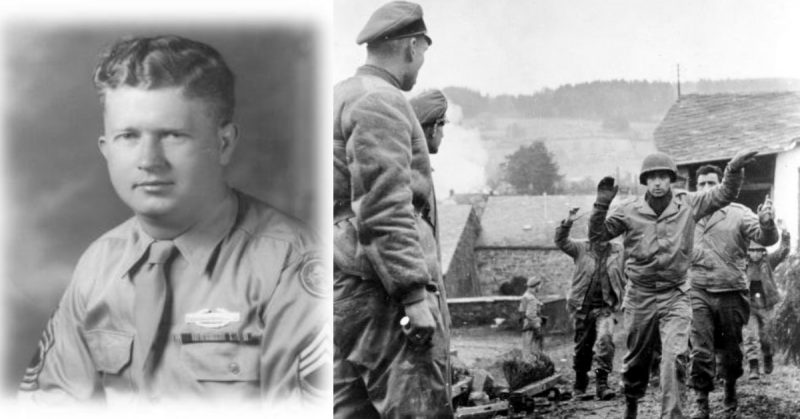Many, if not most, acts of heroism during war are loud, violent, and leave the hero or heroes shaken for the rest of their lives.
Sometimes, however, heroism comes in quiet ways. For example, readers of War History Online may have read about Witold Pilecki, the Pole who voluntarily went to Auschwitz to report on events there. He later lost his life when accused of working against the Polish communist state.
Many people, even his own countrymen, only began to learn about him in the years after the Fall of Communism.
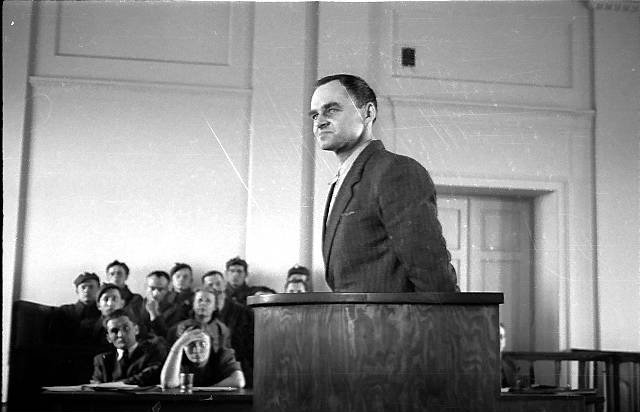
Another quiet hero is Master Sergeant Roddie Edmonds. It was just a couple of years ago that he was posthumously given a high award and named “Righteous Among the Nations” by the government of Israel.
One reason it took so long for Edmonds to be recognized is that he never spoke about his actions during WWII while he was alive. Edmonds passed on in 1985, having served in two wars (WWII and Korea) as well as having worked at Oak Ridge, Tennessee, one of the centers of American nuclear research.
He never spoke about what happened during the end days of WWII. Only the persistent research of his son and granddaughter brought Edmonds’s story to light. *
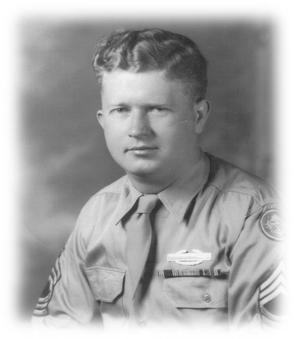
In the fall of 1944, Roddie Edmonds landed in Europe with the 106th Division and was in the Ardennes when the Germans launched their “Fall Wacht Am Rhein,” better known to English speakers as the Battle of the Bulge.
At that time, Edmonds’s division was green, so the 106th was sent to a part of the front that the US high command deemed “quiet.”
It was hoped that the 106th might acclimatize itself by patrolling, carrying out small maneuvers and artillery work, and perhaps engaging in a few small fire-fights in order to get them ready for the spring offensives planned by the Allies.
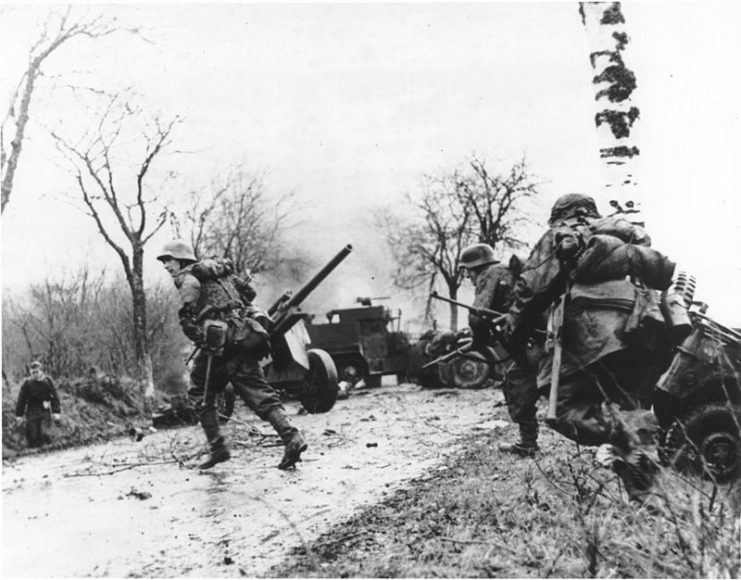
The Germans upset those plans when 250,000 German soldiers came pouring out of the Belgian fog toward unprepared American troops.
Catching the brunt of the northern German charge through the Schnee Eifel mountains, the 106th was overrun and eventually surrendered. However, the men had fought hard, despite being completely out-manned and out-matched.
Roddie Edmonds and his men were taken prisoner on December 19, 1944. They were held in a temporary POW camp before being processed on to another much larger camp.
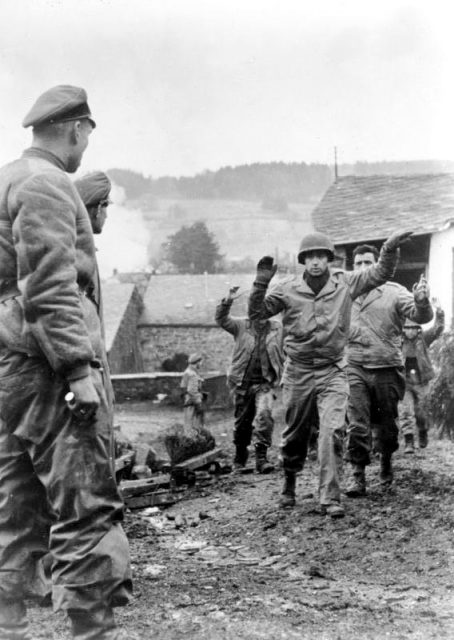
In his diary, found by his granddaughter, Edmonds wrote: “We surrendered to avoid slaughter. We were marched without food and water, except for the few sugar beets we found along the road and puddles.”
In the transit camp, 1,292 Americans were being held. There were no officers in sight, which meant that Roddie Edmonds was the highest-ranking GI there.
About a month after their capture, the Germans announced that they wanted all Jewish GIs to report outside their barracks the following morning. Though the American soldiers did not know about the death camps, they knew about the Nazi’s hatred for the Jews.
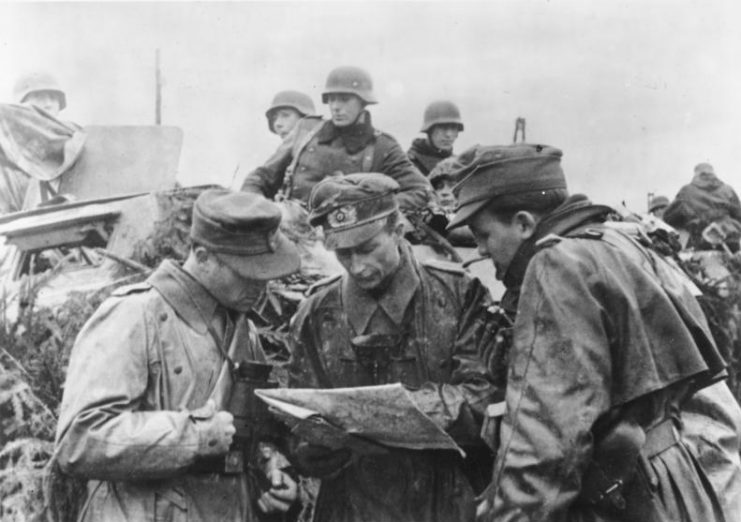
Jewish GIs had been told to ditch their dog-tags on capture, as they were marked with an “H” for “Hebrew.” This was to identify their religion if they were severely wounded and needed pastoral care. There were about 200 Jewish soldiers in the camp.
That night, Edmonds, who was a man with a very strong Christian faith, told his men that the next morning they would all report outside when the Germans came looking for Jewish soldiers.
When the German commandant, Major Siegmann, saw all of the Americans and demanded that Edmonds identify the Jewish American soldiers, Edmonds replied, “We are all Jews here.”
Furious, the major pulled his pistol and jammed it into Edmonds’s head.
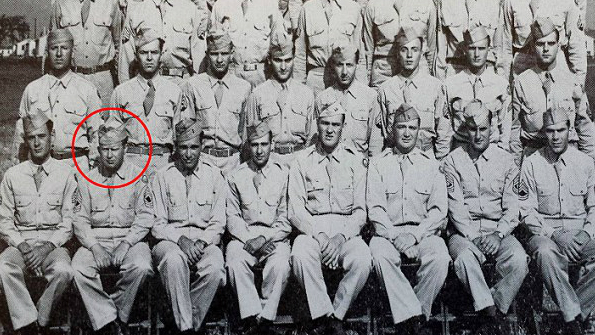
According to surviving members of his unit, Edmonds told the commandant: “According to the Geneva Convention, we only have to give our name, rank, and serial number. If you shoot me, you will have to shoot all of us, and after the war, you will be tried for war crimes.”
The major must have known that the war was not going well for Germany because he relented.
Aside from the bravery of Edmonds, all the men under his command must be regarded as heroes as well.
According to Edmonds’s son, Chris, “When Dad got the orders and told his men that they were not giving up the Jewish soldiers, they could have said “no.” When the commandant pressed the gun against my father some of the men could have pointed out the Jews. None of them did that. They all stood together.”
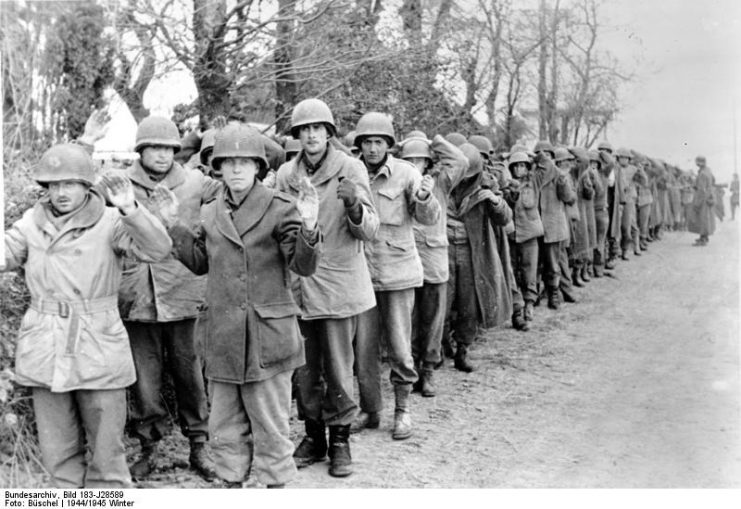
After the war, Edmonds’s son asked his father many times about his role in the conflict. Roddie would always say “Son, there are just some things I would rather not talk about.” It would take a significant amount of digging on the part of his granddaughter for Edmonds’s story to come out.
In 2016, the Jewish Foundation for the Righteous awarded Edmonds its “Yehi Or” (Let There Be Light) Award. He was also named among the Righteous at Yad Vashem in Israel and was named: “Righteous Among the Nations to have saved American Jews.”
This honor has previously been given only to four other Americans, and Edmonds was the first American serviceman from WWII to receive it.
